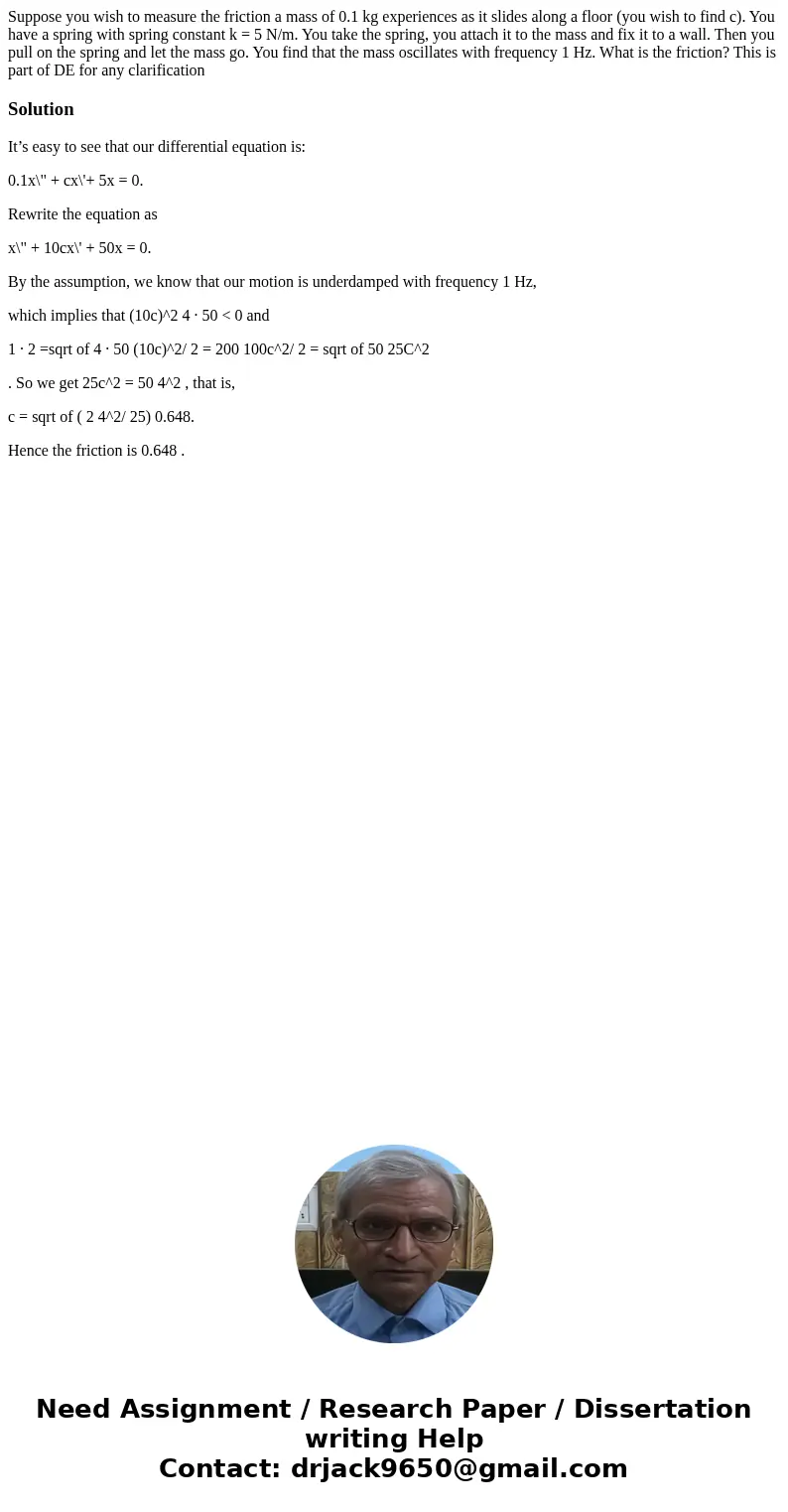Suppose you wish to measure the friction a mass of 01 kg exp
Suppose you wish to measure the friction a mass of 0.1 kg experiences as it slides along a floor (you wish to find c). You have a spring with spring constant k = 5 N/m. You take the spring, you attach it to the mass and fix it to a wall. Then you pull on the spring and let the mass go. You find that the mass oscillates with frequency 1 Hz. What is the friction? This is part of DE for any clarification
Solution
It’s easy to see that our differential equation is:
0.1x\" + cx\'+ 5x = 0.
Rewrite the equation as
x\" + 10cx\' + 50x = 0.
By the assumption, we know that our motion is underdamped with frequency 1 Hz,
which implies that (10c)^2 4 · 50 < 0 and
1 · 2 =sqrt of 4 · 50 (10c)^2/ 2 = 200 100c^2/ 2 = sqrt of 50 25C^2
. So we get 25c^2 = 50 4^2 , that is,
c = sqrt of ( 2 4^2/ 25) 0.648.
Hence the friction is 0.648 .

 Homework Sourse
Homework Sourse